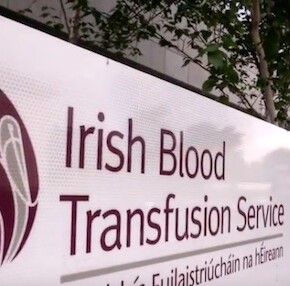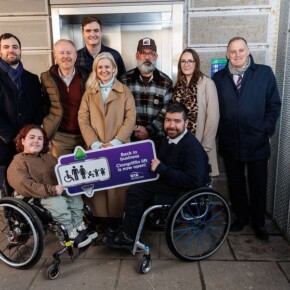National Rape Crisis Helpline sees record number of calls in 2023
Dublin People 27 Jun 2024
This article contains references to rape and sexual violence. Reader discretion is advised.
Last year, the National Rape Crisis Helpline recorded over 18,600 contacts which is the highest level ever in Dublin Rape Crisis Centre’s 45-year history.
This and other data are detailed in DRCC’s annual report which will be launched in Dublin today by Minister for Justice, Helen McEntee TD.
The report shows the largest groups in contact with the freephone National Helpline in 2023 were women, first-time callers and those aged between 18 and 29 years of age.
The largest proportion of people contacting the Helpline wanted to discuss rape that had occurred as an adult (4 in 10), followed by childhood sexual abuse (1 in 3), and sexual assault as an adult (1 in 6).
Continuing the trend of recent years, many callers to the freephone 24-hour National Rape Crisis Helpline had mental health concerns, with over 500 calls relating to suicide ideation over the course of 2023. These calls were observed every month but there were spikes occurring in April, August and towards the end of the year.
Helpline support workers also noted more callers expressing worry about homelessness and other concerns that compounded the trauma caused by sexual violence.
Among DRCC’s therapy clients in 2023, over 7 in 10 had experienced sexual violence as an adult, while 3 in 10 had been abused as children. Almost half of therapy clients were receiving counselling because they had been raped, this was followed by 1 in 6 who had been sexually assaulted and the remainder of clients had suffered a range of sexual violence including online abuse and sexual harassment. In 2023, 89% of clients were women, 10% were men and 1% identified as other.
Accompaniment support work continued to be a substantial focus for DRCC in 2023, supporting 286 people through the justice system, including 186 people who were accompanied to report sexual crimes and 100 more who were given accompaniment support in trials, hearings and other court processes. The team provided emotional support to 306 survivors seeking forensic medical treatment at the Sexual Assault Treatment Unit in Dublin and further support to 202 of their family and friends.
During 2023 the organisation launched its national We Consent campaign to inform, educate and engage with all members of Irish society about consent, and also created a specialised online resource for victims and survivors, Finding Your Way After Sexual Violence.
Speaking ahead of the launch of the report, Minister Helen McEntee said “the publication of the Dublin Rape Crisis Centre’s annual report for 2023, showing 18,605 calls to the national 24-hour helpline, underlines the scale of the challenge that collectively we face, but also indicates that people are increasingly seeking support.
“While any report detailing an increase in calls to organisations such as DRCC is concerning, one of the key objectives in our Zero Tolerance Strategy to combat sexual and gender-based violence is to encourage victims to come forward and to report the crimes that are being committed against them.
“We are making significant progress in that. Nonetheless, many of the figures and statistics from last year are shocking, many of the insights harrowing.
“For example, like previous years, most of those 18,605 contacts to the helpline related to incidents of rape as an adult. That is difficult to process; every number represents a person, a life affected by violence, and it provides startling clarity on why and how the work of DRCC is crucial.”
DRCC’s Chief Executive Rachel Morrogh said “the data published today is evidence that the services of Dublin Rape Crisis Centre are vital supports for people who have experienced sexual violence and that these are needed by the community of survivors more than ever before.”
“The report also points to some worrying trends that indicate considerable mental health needs amongst people affected by sexual violence. While mental health has always been a feature of the calls we handle, our Helpline Counsellors have reported a steady increase in the number of people who are expressing suicidal ideation to them during 2023. Issues that affect the wider population such as homelessness, family breakdowns and conflict, are compounding the mental health needs of our clients. Added to this is a regularly reinforced message from callers that they have slipped through the cracks of an already overburdened mental health system.
“A further concerning trend is that over recent years our therapists have heard from clients that additional forms of violence were inflicted on them and 2023 was no different in this regard. This additional violence may have occurred to facilitate a once-off sexual assault or may be part of a longer-term pattern of abuse. The types of violence that are allied to sexual violence can be physical or psychological and they could also be a contributing factor to the increase in acute mental health needs of some clients.”
DRCC Chairperson Ann Marie Gill noted: The figures published today illustrate the scale of challenges ahead to reduce the prevalence of sexual violence in Ireland. Part of the solution must be that a strong message is heard by perpetrators that sexual violence will not be tolerated. For victims, there must be a swift and survivor-centred path to justice.
“A new provision in the Criminal Justice (Miscellaneous Provisions) Act 2023, which gives judges additional discretion to hand down longer sentences for assaults causing harm from 5 years to 10 years, is welcome. Further progress is the Sexual Offences & Human Trafficking Bill, which includes a requirement for character references to be given under oath or affidavit, thereby ensuring individuals are accountable for the veracity of their testimony. It will also ensure anonymity for victims in all trials for sexual offences and will extend the victim’s right to separate legal representation if, for example, they are being questioned about their previous sexual history.”











